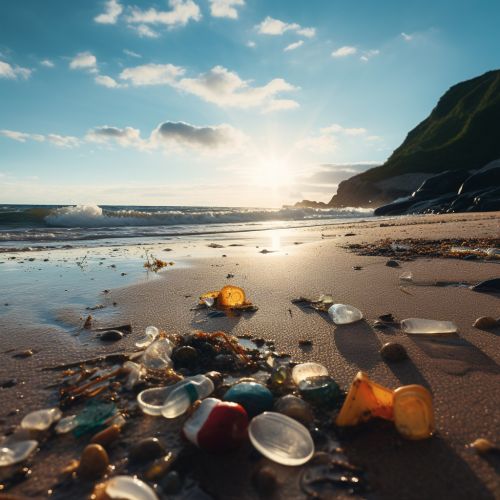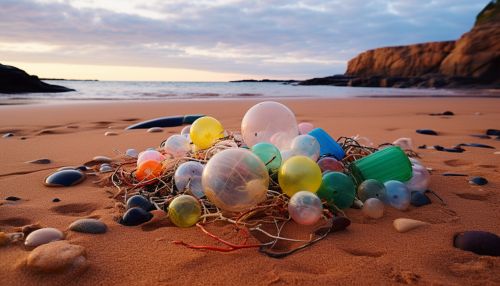Marine litter
Overview
Marine litter, also known as marine debris, is human-created waste that has deliberately or accidentally been released in a sea or ocean. Floating oceanic debris tends to accumulate at the center of gyres and on coastlines, frequently washing aground, when it is known as beach litter or tidewrack.
Causes
The primary source of marine litter is the waste produced by human activities. This can be directly from a ship or indirectly when waste that is discarded on land, rivers, or beaches, is transported by the wind or rivers into the sea.


Types of Marine Litter
Marine litter can be categorized into two main types: macro-litter and micro-litter.
Macro-litter
Macro-litter includes items such as plastic bags, bottles, containers, fishing gear, and other large items that are visible to the naked eye.
Micro-litter
Micro-litter, also known as microplastics, are tiny pieces of plastic less than 5mm in size. These can come from a variety of sources, including larger pieces of plastic that have broken down, microbeads in cosmetics, and synthetic fibers from clothing.
Impact on Marine Life
Marine litter poses a significant threat to marine life. Animals can become entangled in larger pieces of litter, such as discarded fishing nets, which can cause injury or death. Smaller pieces of litter, particularly microplastics, can be ingested by marine animals, leading to internal blockages, starvation, and poisoning from the toxins in the plastic.
Impact on Human Health
There is growing concern about the potential impact of marine litter on human health. Microplastics in particular can accumulate in the food chain, potentially ending up in the seafood that humans consume. In addition, toxins from plastics can leach into the water, posing a potential risk to human health.
Mitigation and Cleanup Efforts
Efforts to mitigate and clean up marine litter include beach cleanups, improvements in waste management, and legislation to reduce the use of single-use plastics. There are also innovative solutions being developed, such as the Ocean Cleanup Project, which aims to remove plastic from the world's oceans using a passive drifting system.
